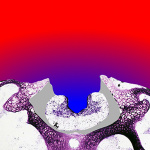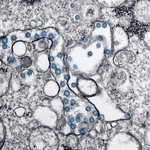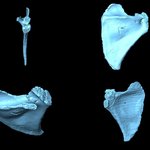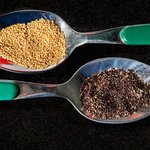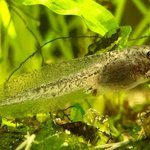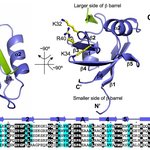Freie Universität Berlin’s Department of Biology, Chemistry, Pharmacy Rising Star Fellowship Program is open to researchers who have completed a doctoral degree within the last four years.
Applicants cannot be alumni of Freie Universität Berlin or have been employed at one of the university’s departments or institutes. The fellowship’s monthly stipend amounts to 2,500 euros for two years. It also includes supplementary funds for travel expenses, family members, and research costs. Applications are due by November 30, 2021, and must be submitted via email. Selection is expected to take place…
Biology
The brain has very high energy demand. For its body mass, the brain keeps mitochondria firing producing our body's common energy currency, ATP, from the fats, proteins, and carbohydrates in our food. and reacts very sensitively to oxygen deficiency. Ludwig-Maximilian-Universitaet (LMU) in Munich neurobiologists have now succeeded for the first time in directly correlating oxygen consumption with the activity of certain nerve cells.
Since the brain requires a disproportionate amount of energy compared to its body mass, and this energy is mainly generated by aerobic metabolic processes that…
It is often said that animals behave unusually before an earthquake. In an international cooperation project, researchers investigated whether cows, sheep, and dogs can actually detect early signs of earthquakes.
In the experiment, sensors to the animals in an earthquake-prone area in Northern Italy and recorded their movements over several months. In order to be able to use animal activity patterns as a kind of early warning system for earthquakes, the animals would have to show measurable behavioural changes. Moreover, if they do indeed react to weak physical changes immediately before an…
The European Patent Office may have hoped to put an end to its chaotic decision-making, because they have written an opinion that "plants and animals exclusively obtained by essentially biological processes are not patentable," and environmentalists opposed to science are cheering, but that may be because they don't realize how confusing the G 3/19 "Pepper" decision really is.
Activists say an inability to patent means that companies have less incentive to optimize plants, but they ignore that it is also an indication that there is no scientific foundation for beliefs that products like GMOs…
European advocacy groups are getting help from avowed communists such as Rob Wallace, Marxist conspiracy theorist and author of Big Farms Make Big Flu, in their fight against science. It may be a losing battle since coronavirus shows how important science and medicine are to the modern world. Italy is at 11,591 deaths and Spain has 7,340 but that is a tiny fraction of 100 years ago during the Spanish Flu.
Groups like Greenpeace and Corporate Europe Observatory are concerned that just when they had Europe convinced it should continue to reject GMOs and more effective pesticides, consumers have…
As most people rush to distance themselves from COVID-19, Canadian researchers have been waiting eagerly to get our (gloved) hands on the hated virus.
We want to learn everything we can about how it works, how it changes and how it interacts with the human immune system, so we can test drugs that may treat it, develop vaccines and diagnostics and prevent future pandemics.
This is what researchers live to do. Much of our everyday work is incremental. It’s important and it moves the field forward, but to have a chance to contribute to fighting a pandemic is especially inspiring and exciting.…
We feel that we live in the present. When we open our eyes, we perceive the outside world as it is right now. But we are actually living slightly in the past.
It takes time for information from our eyes to reach our brain, where it is processed, analysed and ultimately integrated into consciousness. Due to this delay, the information available to our conscious experience is always outdated.
So why don’t we notice these delays, and how does the brain allow us to feel like we are experiencing the world in real time?
We’re living in the past
Consider catching a ball. It takes several dozen…
It sounds like something out of a bizarre horror movie – or from the tall tales of an 18th-century explorer. But that is exactly what Captain James Cook’s expedition found in 1775 when its members set foot on the remote subantarctic island of South Georgia. Not that the expedition’s naturalists knew about the duck’s diet at the time, simply that it was remarkable to have found a duck this far south.
What Cook had discovered is now known as the South Georgia pintail (Anas georgica georgica), a rare subspecies of pintail duck only found on this remote island in the Southern Ocean, and one that…
For decades, European policymakers have strong-armed African nations to prevent approvals of desperately needed biotech crops (GMOs), even as devastating plagues of new and old plant pests ravage the continent and mire African farmers in a perpetual state of food insecurity.
As others and I have previously reported, the EU has been assisted in this by an extensive network of EU and US NGOs, and in recent years, an increasingly radicalized FAO[1], that have poured hundreds of millions of euros into spreading the most egregious lies and disinformation in the African media, claiming GMOs and the…
More than two years have passed since the detection of what is arguably the most damaging tree pest ever to arrive in South Africa: the polyphagous shot hole borer (Euwallacea fornicatus). The beetle kills trees and there are no proven remedies.
The beetle is now present in nearly all parts of the country and in more than 100 tree species.
An invasion of this magnitude should have elicited a rapid response and the development of a strategic action plan. But that hasn’t happened. South Africa has never had to deal with a tree-killing pest of this importance before. In addition, the country has…
Two scapulae of Homo antecessor, found during the excavation campaigns of 2005, 2006 and 2007, belonged to a boy or girl about three years old (ATD6-116), and a minor of unknown sex, and age equivalent to that of a modern adolescent (ATD6-118). It shows that this species from the European Lower Pleistocene at the Sierra de Atapuerca had already completely lost its ability to climb easily, and suggests that it had the skeleton of a hominin that habitually walked.
In the entire hominin fossil record, there are only four complete specimens of this part of the skeleton for the period between six…
Could Lyme disease in the U.S. be the result of an accidental release from a secret bioweapons experiment? Could the military have specifically engineered the Lyme disease bacterium to be more insidious and destructive – and then let it somehow escape the lab and spread in nature?
Is this why 300,000 Americans are diagnosed annually with this potentially debilitating disease?
It’s an old conspiracy theory currently enjoying a resurgence with lots of sensational headlines and tweets. Even Congress has ordered that the Pentagon must reveal whether it weaponized ticks.
And it’s not true.
Ticks…
After exposing more than 70 million grain amaranth seeds to a soil-based herbicide, researchers were not able to find a single herbicide-resistant mutant, according to a report in the journal Weed Science. The findings suggest that the mutation rate in amaranth is very low, and that low-level herbicide application contributes little - if anything - to the onset of new mutations conferring resistance, researchers say.
Any major stress that does not kill a plant can contribute to genetic mutations in its seeds and pollen, said University of Illinois crop sciences professor Patrick Tranel, who…
Stretching the day beyond what nature provides has provided numerous cultural benefits for humans but a new study has linked nighttime illumination caused by people to decreased amphibian reproduction.
The authors of a recent experiment exposed wood frogs to a control and two anthropogenic light conditions: intensified daytime illuminance and artificial light at night. They found that both the intensified daytime illuminance treatments and the light at night treatment decreased hatching success in tadpoles. Tadpoles that were reared in the light at night treatment were larger, less active…
Researchers have shown that circadian oscillations in the influx of immune cells into the damaged tissue play a crucial role in exacerbating the effects of an acute heart attack in the early morning hours. The extent of the inflammatory reaction triggered by an acute heart attack, and of the resulting damage to the heart muscle, varies depending on the time of day at which the infarct occurs.
In a new study, researchers led by Sabine Steffens, Professor of Clinical Pathobiochemistry in the Institute for Cardiovascular Prevention (IPEK) at the Ludwig-Maximilians-Universitaet (LMU) in Munich…

